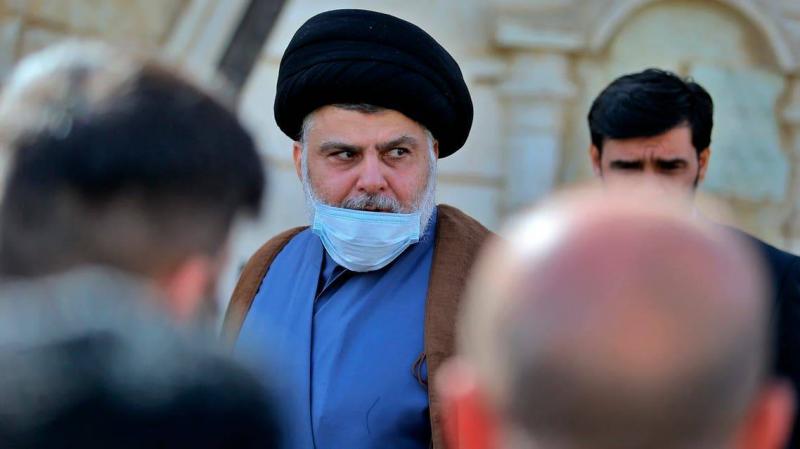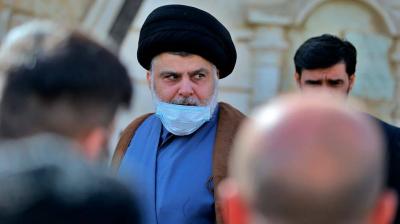While consultations between his movement and allies to form a government are expected to continue, the leader of the Sadrist movement, Muqtada al-Sadr, expressed his frustration today, Friday, over the threats regarding this issue. He confirmed in an angry tweet that "the threats from the predatory beasts" will not deter him from proceeding with the formation of a majority government.
He added that "most of the people are in favor of a national majority government," asserting that he will not stand idly by. He continued, "Enough with the threats and warnings, for we will not return the country into the hands of the corrupt, nor will we sell the homeland to those beyond the borders." Furthermore, he revealed that the threats coming from those he described as predatory beasts are directed at partners and allies in the majority government.
Additionally, the office of the Sadrist leader stated in a communiqué yesterday that Sadr has agreed with the President of the Kurdistan Democratic Party on the necessity of convening a meeting for the Triad Coalition forces (comprising the Sadrist movement, the Democratic Party, and the Progress Alliance led by Muhammad al-Halbusi, the President of the Iraqi Parliament) in the coming days to coordinate positions with the aim of forming a new government in the country after the parliamentary elections that took place on October 10, 2021, which stalled due to political disputes.
### The Stronger Conflict
Since the elections in which the Sadrist movement secured 73 parliamentary seats, the country has been enduring a political crisis and difficulties in selecting a president, due to the ongoing dispute between Sadr and the Coordination Framework. The strongest conflict in the country is between Sadr, who is allied with the Democratic Party and claims to have a sufficient parliamentary majority to proceed with forming a "majority government," and the Coordination Framework, which includes the Fatah Alliance (representing the Popular Mobilization Forces, mostly composed of armed factions loyal to Iran), which won 17 seats in the elections, as well as the "State of Law" coalition led by former Prime Minister Nouri al-Maliki (33 seats) and other Shiite parties. The Coordination Framework insists that it is the owner of the largest bloc, traditionally entitled to form the government.
This dispute casts a shadow over the political scene, freezing any developments regarding the election of the president or the formation of the government in a country that has become accustomed to resolving such entitlements through consensus and political sharing among active political forces.




